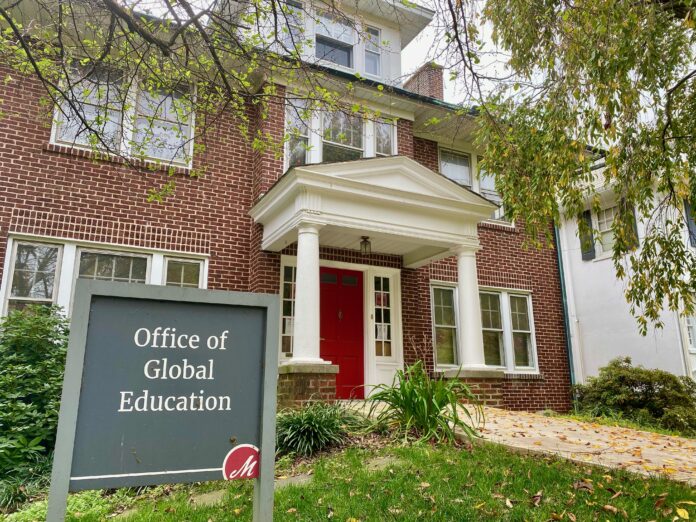It was business as usual during the Common Hour meeting for study abroad programs on Friday, Oct. 16. The meeting, geared primarily toward students in the Class of 2023, promised information about the benefits of studying abroad, the application process, and a time for Q/A. Save for the new Zoom venue, the beginning of the meeting felt completely standard.
Except, of course, for the warning before the presentation: ‘DUE TO COVID-19, ALL DATES MAY CHANGE.’
Still, the meeting went on with what could be described as a tone of cautious optimism. The office clearly encourages students to pursue this travel if they seek it and, considering the large number of students in attendance, it seems that many still do. Students were reminded of pressing deadlines: applications for the 2021-2022 school year are due in December and passports should be acquired or renewed, if necessary, during winter break.
“Students who wish to go through with traveling must sign a waiver to indicate their understanding of potential dangers.”
The timeline of decisions depends upon whether a student is taking classes during the new Winter term or not – those grades must be in before the Office of Global Education can make a decision on a student’s application. Though much has changed, the basic outline of affairs for studying abroad remains the same.
Donna Kish-Goodling, Ph.D., dean of global education, bolstered the belief of the students in attendance about their prospective decision through statistics about the benefits of going abroad. For example, she reminded students that “over 250,000 students study abroad each year” and that, among the millions of college graduates in the United States each year, studying abroad is “the one thing that makes [a student] different.”
But the conversation did eventually turn to the inevitable. What concerns should these students have during the era of COVID-19? The face of study abroad has inevitably changed during this time and such changes were acknowledged. A striking statistic was the diminished number of available programs, which have apparently dropped from the previous 160 to 137, with many of those missing programs having permanently closed.
As far as individual travel goes, according to Kish-Goodling, the Department of State has issued a Level 3 Travel Advisory warning for almost all countries, meaning that Americans should “reconsider travel.” Students who wish to go through with traveling must sign a waiver to indicate their understanding of potential dangers. Furthermore, many travel agencies are stating that the “risks of COVID are now known.”
“If a student feels hesitant regarding next year, Kish-goodling advises them to ‘go [abroad] the following year, in senior year.’ “
What exactly does this mean for students? Kish-Goodling explained that, given the preemptive knowledge of risks before travel, if students change their minds about studying abroad, “refund policies aren’t generous.”
Unlike in the spring when programs were canceled and students had to suddenly and unexpectedly return home, if a student chooses to rescind their decision on studying abroad due to COVID concerns, they will “front the costs – possibly thousands [of dollars].” However, if a program is cancelled, the Study Abroad Office will work with students to help them choose a different program or refund their deposit.
If a student feels hesitant regarding next year, Kish-Goodling advises them to “go [abroad] the following fall, in senior year.” Other than a brief explanation on MILA courses being held in the Spring semester, there was little to be said in regards to opportunities for the current upperclassmen whose programs may have been canceled. Evidently, the Office of Global Education is looking to the future and pushing forward with plans. Despite the potential risks, the current philosophy is clear: keep calm and carry on.






















